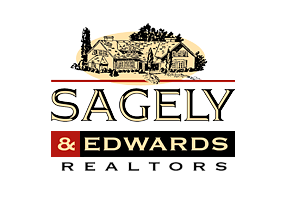
Visit Mobile Site

Find out how much your home is worth!
It's free, simple & easy.
Stay up to date with the latest real estate news and special promotions!
Subscribe to our newsletter to get up-to-date info on the latest housing market conditions for this area.

Getting involved with an investment of any kind is a significant business operation and one that should not be entered into lightly by any means. By going through an extensive set of information before ever signing your name on the dotted line, you can avoid some of the pitfalls that are awaiting investors on some projects. There will always be unforeseen circumstances encountered on any business deal and purchasing an investment property is no different.
Know Your (Potential) Tenants
If you are buying a multi-family home with current renters, make sure you get a full disclosure on all of the information surrounding those renters. Do some of the tenants have a history of late payments? Are you going to have to replace one of the renters in the near future?
Obviously, a piece of real estate full of eight-year tenants will be a bit more attractive than a property with a high level of turnover. By buying a rental property, you are buying into the management of that property and you should have a complete picture on the kind of time and effort commitment that is going to be necessary to maintain the real estate. If minimizing your day-to-day time expenditure on a property is important to you, perhaps you will put a premium on a history of stability with the property.
Know Your Property
Of course you will take numerous tours of the property before purchase, but make sure you either commit to memory or write down any of the small little items you notice that might need work or further investment. Obviously, the state of the appliances in the piece of real estate is something to be noticed as you will often be asked to update those appliances later and some kind of expectation has to be determined as to how likely it is that you'll have to in the near future.
Any kind of infestation is a huge red flag as it can indicate further infrastructure problems with the property, so be sure to look for anything that might suggest a pest problem. Externally, investors sometimes neglect to think about features such as landscaping and drive way/roadway repairs that could become issues over the course of owning a multi-family property. It is easy to see problems that a coat of paint could solve but perhaps more difficult to see sprinkler-system troubles on a property inspected in December. Be sure to exhaustively inspect your potential investment just as you would exhaustively inspect a piece of real estate you hope to make your new home.
Know Your Implied Agreements
Often, investment properties come with strings attached to other companies that might have agreements on the property. Sometimes those agreements terminate during a change of ownership, but sometimes they don't. That can include cable television services, landscaping, snow removal agreements and a whole slew of property-upkeep services that need to be done on any property. If you are not planning to take care of these types of things yourself, an outside company must be used and sometimes previous agreements will leave you without the ability to even negotiate rates. These are all costs associated with adding an investment property to your portfolio and should be understood before taking action on any piece of real estate.
There are loads of other aspects to owning a property that are best left for other articles, but never underestimate the time and effort commitment it requires to take on an investment property. By doing some thorough homework on the state of the property, the state of the tenants and the state of the external agreements surrounding the property, you can ensure that you have a full picture of the property and what your financial outlay will have to be. Doing your homework before any of those steps will remove some of the uncertainty and potential mistakes that can beset investment projects.